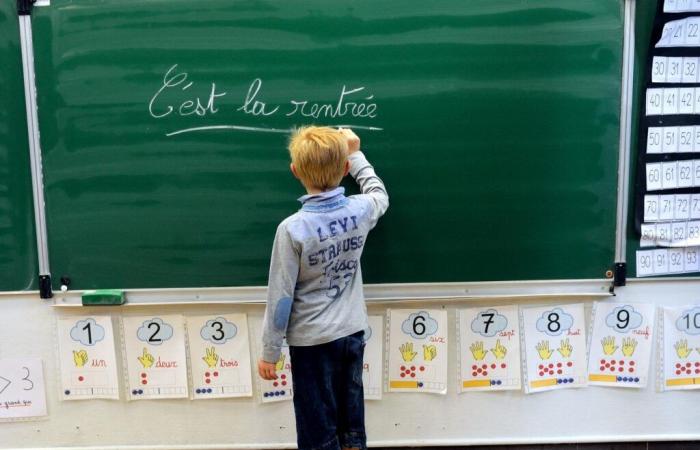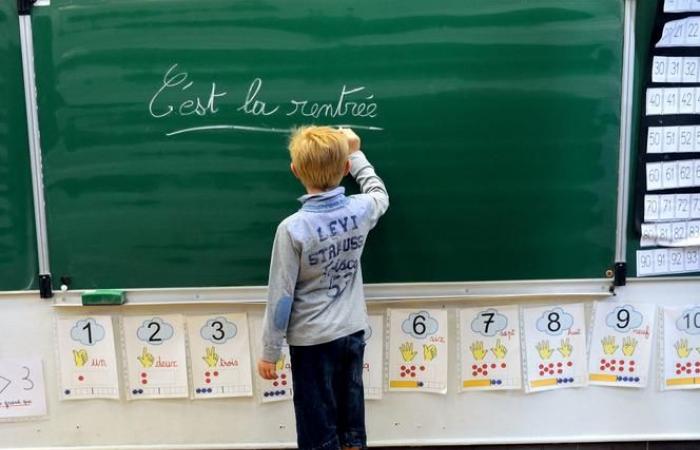Why do girls drop out in mathematics? The question remains, when reading the French results of the international survey Trends in International Mathematics and Science Study (Timss), carried out in 2023, like every four years, in around fifty countries among CM1 and 4 pupils.eand made public on Wednesday December 4.
Read also | Article reserved for our subscribers Mathematics: France still last in Europe and champion of inequalities
Read later
France is one, with Australia and Italy, of the countries where the gap in performance in CM1 is the largest between the two sexes. There are 23 points of difference (496 points for boys and 473 points for girls), compared to 13 during the previous edition, in 2019, i.e. several months of difference in the acquisition of knowledge and skills. The gap between girls and boys is not significant in 4th gradee.
These conclusions are consistent with those of national assessments, taken at the start of each elementary school year and then in year 6.e4e et 2of. Between 2017 and 2024, the gender gap widened, in 6e notably: while the average score of girls remains stable, that of boys increases by 7 points. “In the 2010s, the various studies did not show a significant gap between girls and boys”notes Clémence Perronnet, sociologist and co-author of the work Matheuse. Girls, the future of mathematics (CNRS Editions, 240 pages, 24 euros).
Self-fulfilling prophecy
The discrepancies start early, according to an analysis of these national assessments. While girls have better results at the start of primary school, boys obtain better scores from mid-CP, then throughout school. This gap “is observed in all social categories and family configurations, and across the entire territory”notes the Institute of Public Policy in a note on “The dropout of girls in mathematics from CP”, published in January. For the institute, the explanation for these differences is to be sought on the side of “weight of gender stereotypes that weigh on students” and “spread early and very widely within society”.
The Ministry of National Education agrees: “There is work to be done on the way girls represent mathematics” car “When we talk about numbers in the main kindergarten section, the girls are as comfortable as the boys. When we start talking about mathematics from first grade, they lose confidence”. This trust deficit is widely documented by the national education statistics service.
You have 62.59% of this article left to read. The rest is reserved for subscribers.







